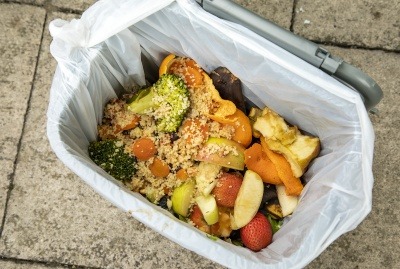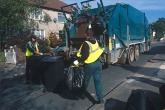REA updates policy on food waste liners and bags
The Association for Renewable Energy and Clean Technology (REA) recently outlined its updated policy on liners and repurposed bags for collecting targeted food waste streams in England.
The policy document, with contributions from members and stakeholder contacts, was sent to the Department for Environment, Farming and Rural Affairs (Defra) on 4 July. The policy was drawn up as part of the organisation’s response to Defra’s recent consultation on consistency in household and business recycling in England.

The document highlights the desire shared by governments, regulators, and industry to reduce the amount of visible plastics and microplastics reaching soils via waste-derived composts and digestates. Additionally, it outlines the biowaste recycling and recovery sector’s commitment to producing high-quality digestates and composts to manage food wastes efficiently.
The REA’s updated policy aims to present solutions to these issues, with the goal of facilitating a higher quality and yield of composts and digestates produced from organic recycling and recovery of separately collected biodegradable wastes, whilst also reducing the risk of pollution when composts and digestates are spread on land.
The document outlines key policy criteria, requiring discarded non-packaged and user-unpackaged food, including where co-collected with plant waste, to be presented in plastic or paper liners or repurposed bags. Waste can also be presented in a user-made caddy or bin lining made of a repurposed, paper, non-bag/liner item, such as newspaper, or loose inside the bin.
Waste bags must additionally have a certificate of compliance with the BS EN 13432 or BS EN 14995 standards, which evaluate the recovery of packaging through biodegradation and the compostability of plastics, respectively. Both standards include disintegration and biodegradation tests, and pass/fail criteria relevant to industrial-scale composting conditions, as well as tests and pass/fail criteria relevant to ecotoxicity, heavy metal concentrations, and compost quality.
The document highlights the benefits of compostable liners, which it says have been shown to lead to reduced levels of contamination by non-compostable plastics. This also eases the financial costs of removing and sending front-end removed liners and re-purposed bags to waste recovery or landfill facilities, as well as the associated environmental impact.
In addition, it says, the use of compostable liners will enable policy-compliant liners and re-purposed bags to be fed into anaerobic digesters after suitable pre-treatment, or to be front-end removed at the digestion facility, then sent to an in-vessel composting facility to be composted.
In order to support the policy, the REA encourages a series of measures, including further discussion with policy-makers and stakeholders; updating end of waste rules; uniform marking of policy-compliant bags/liners; funding for public sector behaviour change resources; sufficient reduction of contamination; use of the policy’s criteria in public and private sector tender invitations for new and revised contracts for the collection of in-scope waste streams.
The policy is supported by several organisations, such as A Plastic Planet, the Bio-Based and Biodegradable Industries Association, Co-op, the Chartered Institution of Wastes Management, the Foodservice Packaging Association, the National Farmers’ Union, and Plastics Europe. The REA has additionally outlined its intention to seek support from devolved governments in Wales, Scotland and Northern Ireland.







